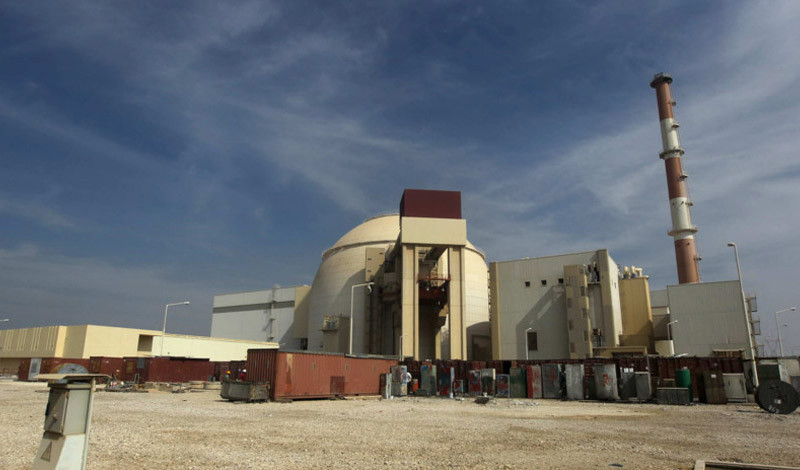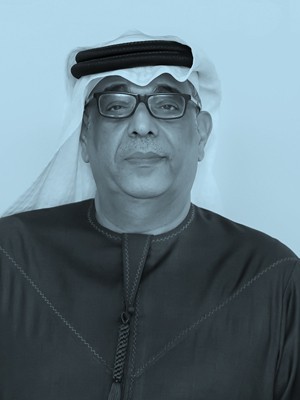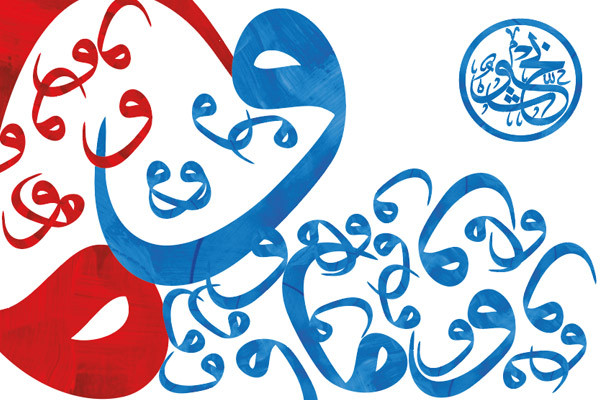America and Iran: A New Tale
The carpets woven by women of nomadic tribes in Iran are inspired by the surrounding environment: the trees, rivers, passing birds and humans are always present in these carpets, turning the carpet into a tale. As the places and their components are changing constantly, carpets made by the same figures are never alike. The changing times make the carpet seem more like an open biography or an open tale. But it seems that inscriptions on the Persian carpet will change a little, as a new novel is being written now.

- by Mohamed Ahmed Yusf Al Obaidly ,
- Wednesday, 3rd June, 2015
Maybe the chapters of the new novel began years ago, when Obama administration officials started studying and overturning their options on the best way to face Iran. What pushed them towards that? One major fact was that Iran is not Iraq.
The ability of Iran to respond and because harm is greater than that of Iraq in the last years of Saddam Hussains rule. Iraq was exhausted and a debilitated country after two successive wars and a tough economic blockade during the 1980s and 1990s.
From a strategic and military point of view, Iraq was a weak opponent that could be defeated with minimal loss, and this was proven by the US-led invasion in 2003. On the other hand, the invasion of Iraq and the invasion of Afghanistan in 2001 exhausted the US. With the onset of the global financial crisis in the 2008, this exhaustion doubled.
So, in August 2012, James Dobbins and Alireza Nader, a fellow and an analyst respectively at the RAND Corporation, published an article in Foreign Affairs magazine, commenting on an article by the American historian Michael Ledeen published in the same magazine the previous month (July 2012).
In his article, Ledeen had called on Washington to work on supporting a revolution in Iran instead of imposing sanctions and maintaining a military option against it. Dobbins and Nader in their article agreed with Ledeen on this conclusion about the futility of the military option and sanctions against Iran.
Dobbins and Nader, as well as Ledeen, agreed that as long as the ultimate goal was toppling the regime, and as long as the Iranian opposition was too weak to accomplish this goal, the US administration should concentrate on highlighting human rights violations in Iran.
They concluded that US moral support for Iranians is more important than dollars and guns. If Iranians head out into the streets again (similar to public protests in 2009 after the presidential election), the United States should express full support for their struggle, as it has done elsewhere in the Middle East.
Can we say that the Obama administration heeded such advice? The question may not tackle what the P5+1 (the US, Britain, France, Russia, China and Germany) offered Iran in the nuclear negotiations, but what motivated Washington to engage with Iran in these negotiations in the first place.
Many experts believe the Obama administration went ahead with the negotiations betting that an agreement on the nuclear issue and the lifting of the sanctions on Iran would strengthen the moderate wing in the Iranian ruling elite at the expense of the conservatives.
Illusion
But experts now see that this bet is close to being an illusion. Obama administration officials are also betting on what was said to be a fatwa from the Supreme Leader Ayatollah Ali Khamenei prohibiting the possession of a nuclear weapon. But again, this seems unrealistic because a fatwa like this has not been officially declared or published. So it comes across as a remark, and and no more. Furthermore, the experts on Iran believe that Tehrans ability to acquire nuclear weapons is doubtful and uncertain, considering the very high cost not only of possessing such weapons, but also managing the nuclearfacilities.
On the other hand, Iran has entered into these negotiations to achieve three main objectives. First, strike off the Wests military option; in this it has been successful. Second, the lifting of sanctions, which has been agreed to gradually as part of the Lausanne framework agreement.
And third, to get recognition as a regional power. But it is still not clear if, and to what extent, will the US and western countries accept such a role for Iran. This Iranian goal is the also opposed by Gulf and Arab countries, which have reservations about the negotiations, too.
Since we can’t talk about an agreement or deal without compromises and concessions, the description of the agreement by some Iranian officials as a victory is something that needs to be checked in order to put it in its proper context.
In a short report, published by Al Jazeera Centre for Studies entitled Whats after Lausanne: Hassan Rouhani and his team facing home, Jordanian expert in Iranian Affairs Fatima Al Sammadi summarises the arguments of proponents of the agreement who claim that that Iran has achieved a victory through the following: International recognition that Iran possesses the necessary technical know-how in the nuclear field; the acceptance by the international community of Irans right to peaceful nuclear technology; that nuclear technology as a source of income for Iran; the positive impact on the national economy of the lifting of sanctions; and finally, the fact that the agreement struck off the military option against Iran.
While opponents of the deal say that the agreement crosses a red line because it creates irreversible legal obligations towards the international community and that in [comes in] two phases and not as Iran wants, one final and comprehensive agreement, in addition to the ambiguity of many of its articles, especially mechanisms of lifting of the sanctions.
Those articles dont just bring the nuclear installations under foreign supervision but even the Iranian economy, to an extent, making the veteran Iranian writer Amir Taheri describe it as a trusteeship.
In his article entitled If the mullahs decide to surrender, published in Al Sharq Al Awsat newspaper (March 6, 2015), Taheri recalls the extreme sensitivity of Iranians towards foreign interference, concluding that all Iranians, even Khomeini loyalists who reject nationalism as most Islamists do, will not find it easy to accept an agreement under which Iran is committed to obtaining the approval of the foreign powers in order to spend its own funds.
Normalisation?
The door that this agreement or deal would open is that of normalisation with the international community. But what is the right definition for normalisation? Will Iran become a normal state, giving up its efforts to impose itself as a regional power?
Is it going to change its policies and end its support for its allies in some Arab countries? Will it change its policy from confrontation to cooperation?
All this seems premature; and for some, questionable. But there are also questions about history that can also decide whether Iran is on the path of internal transformation of some kind, given the belief of Obamas administration in strengthening the moderate wing.
Are there signs of transformation of this kind in Iran 36 years after the revolution?
The rule of former president Mohammad Khatami (1997-2005) and the protests that followed the 2009 elections provide the clearest proof of a real and strong desire for change within Iranian society, and from his point of view, Taheri thinks that Iran may be in the same condition that prevailed in China before the advent of Deng Xiaoping in 1978.
Furthermore, the Iranian Deng Xiaoping is here, and is playing the same role within the same circumstances. Well, let us wait and monitor the inscriptions on the Persian carpet and its new tale.

Mohamed Ahmed Yusf Al Obaidly
Consultant, Regional Affairs (former)
Read More
Areas of Expertise
- Regional Affairs
- Public policy
- Geostrategic Affairs
Education
- Studied Economy & Political Sciences -Cairo University
Bio
With his veteran career in journalism, Al-Obaidly has an extensive, firsthand experience in regional and international affairs. He covered the first and second Gulf War, while also covering Palestinian and Sudanese affairs. In the last decade he started to focus on Political Islam movements.
Al-Obaidly is a regular commentator and columnist, frequently published in local Bahraini media and several others regionallly. He also worked as an editor in the Monthly Le Mobdediplomatique (Arabic Edition) from 2008 – 2010.
These backgrounds and expertise formed a solid base to move to the research and studies field.

